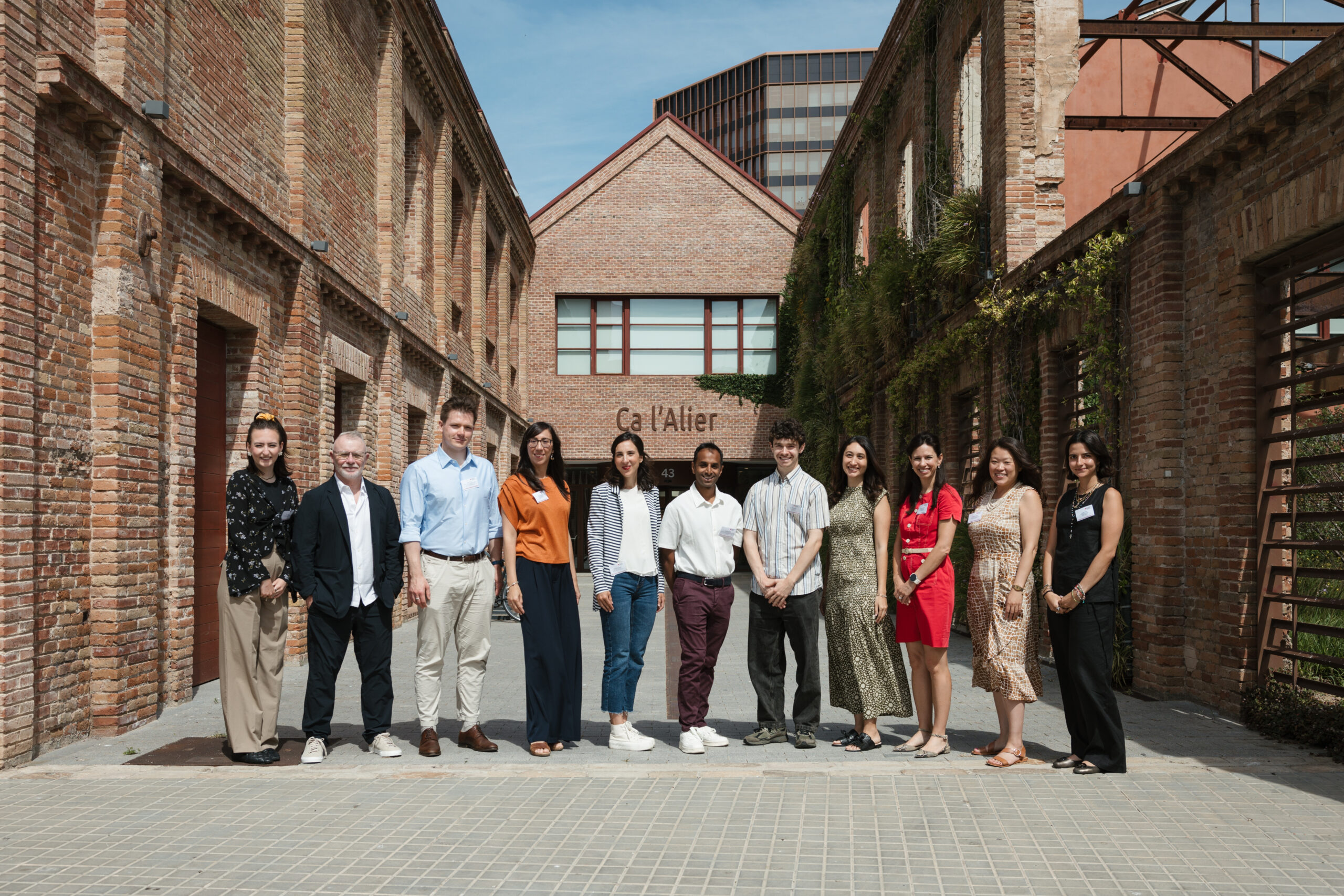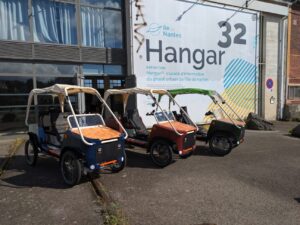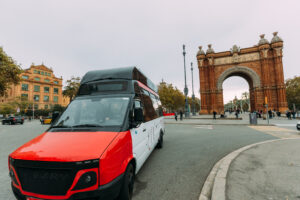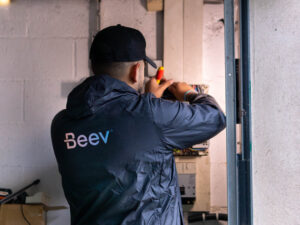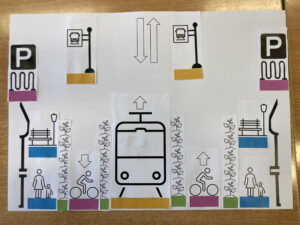A unique programme is helping high-potential public-sector officials in sustainable urban mobility grow into confident, effective leaders and navigate an increasingly complex urban landscape.
The EIT Urban Mobility Emerging Leaders Programme, a joint initiative with RMIT Europe, combines executive coaching, peer learning and C-suite insights to equip participants with the tools to drive meaningful change in their cities. Launched to address a recognised gap, in which public-sector employees often have limited access to professional development and few spaces to reflect on the type of leaders they aspire to be – the programme offers a rare opportunity for tailored leadership growth.
The programme is built around five core pillars: personalised coaching with two professional executive coaches from RMIT Forward, peer-led learning circles where participants share real projects, closed-door conversations with C-suite leaders from diverse sectors, and a final collaboratively organised conference where cohorts showcase their insights and lessons learned. An alumni network extends the impact beyond programme completion, offering a dedicated space for sharing opportunities, monthly calls and ongoing peer-to-peer support.
Applicants are nominated by senior figures in their organisation or city council, and cohorts are intentionally kept small to allow for personalised learning and strong bonds of trust to build over the six-month of hybrid leadership experience.
The programme has already launched two editions and brought together participants nominated by city councils and public entities from Budapest, Milan, London, Malta, Munich, Madrid, Tallin, Vitoria-Gasteiz and Dublin.
Boosting confidence
“It gave me confidence to step up and to lead more proactively,” explained Julia Azpiroz de Achával, a Technical Officer for the Barcelona Metropolitan Strategic Plan (PEMB) working in urban mobility and climate change.
For Azpiroz one of the key benefits was the professional executive coaching sessions, which aim to empower participants to handle emerging challenges, take the next step in their careers, and explore their long-term goals and ambitions.
“The coaching gave me practical tools to work on these challenges. That was definitely the highlight for me…It offered a rare moment to pause and reflect on where I was as a professional, where I wanted to go, and what tools I had. It was the first time I’d done that, and I really enjoyed my sessions,” she added.
The programme’s closed-door sessions with C-suite offers participants approaches and pathways to leadership, as well as judgement-free exploration of their goals and future career opportunities.
Planting the seeds for leadership
The programme provides a wide variety of tools for public-sector leaders to explore, from new ways of leading to fostering collaboration across diverse stakeholders.
“That is something that I’m trying to apply in my day-to-day work,” Azpiroz noted.
These skills are considered essential for public-sector leaders that are driving the transition to sustainable urban mobility, making it possible for programme participants to have a real impact on their communities. For Barcelona City Council Urban Strategist Jordi Marfà Vives, who worked on the team behind the city’s renowned Superblocks initiative, the programme’s tools were things he could “use immediately” in his work, as well as forming a “kind of seed” that kept growing. It also supported him in implementing innovative projects that not all stakeholders immediately embraced.
“The programme gives you a self-awareness of what you’re doing and reminds you that the work is challenging, but that it’s OK to keep going,” Marfà said. “There will be problems, but you can face them and move ahead.”
Looking ahead, participants from the programme’s second cohort launched in June 2025 are eager to draw their own insights. Leire Balzategui, Innovation Manager at the Mobility Lab in Vitoria-Gasteiz and cohort two participant anticipates “In our work, we often lead without direct authority – bringing together diverse actors and navigating complex systems. This programme gives us space to reflect, learn from peers and strengthen the mindset needed to lead collaboratively.”
Community of practice
A core component of the programme is about forging practical and long-lasting connections with other participants. Through regular exchanges, both in-person and online, participants discover that many of their challenges, and solutions, are shared across cities.
“It’s a relationship, so if you need anything you can ask for help,” Marfà pointed out.
The participant-centred design enables peer exchange through unique ‘learning circles’, where members tackle real leadership challenges and bring their own topics to the group. For Marfà, the diversity of participants, from different countries, roles and contexts, was “one of the strengths” of the programme.
“This community we built with our peers, working on similar challenges in different cities or even in the same city, was really important to me,” Azpiroz agreed, “That stays with you even after the programme ends.”

After the programme comes to a close, participants are invited to join the alumni community, in which they can continue benefiting from collaboration and connections forged in the programme. Alumni of the first cohort report that they have maintained communication with several meetups throughout the year to check in with each other. A new ‘Mobility Mentoring’ programme, in which alumni from the first cohort are connected with participants from the next cohort, also helps to create cohesion and a sense of community across multiple years of programme participation.
Investing in the future
EIT Urban Mobility has supported the programme since its launch, including partial scholarships for participants from municipalities with limited resources. “By empowering these leaders you’re investing in the future of urban mobility,” said Carola Vega, Sustainability Leadership Programme Manager at RMIT Europe who oversees the Emerging Leaders programme.
Vega noted that participants also value being part of the wider EIT Urban Mobility ecosystem, which connects them to a broader network of urban mobility leaders across both the public and private sectors. The programme’s final event, a collaboratively organised session showcasing key learnings, was held at EIT Urban Mobility’s flagship Tomorrow.Mobility World Congress (TMWC), giving the emerging leaders’ work a prominent platform.
Looking back, Marfà sees the programme as an “impressive” moment in his career. He explains, “It was a great opportunity for me to go in-depth with a lot of aspects that affect public space, mobility systems, green spaces, and the participation process, while gaining an awareness of my potential.”
Nominations are now open for the Emerging Leaders programme’s third cohort, which will begin in October 2025. European city councils and public entities are invited to nominate an emerging leader from their team.
